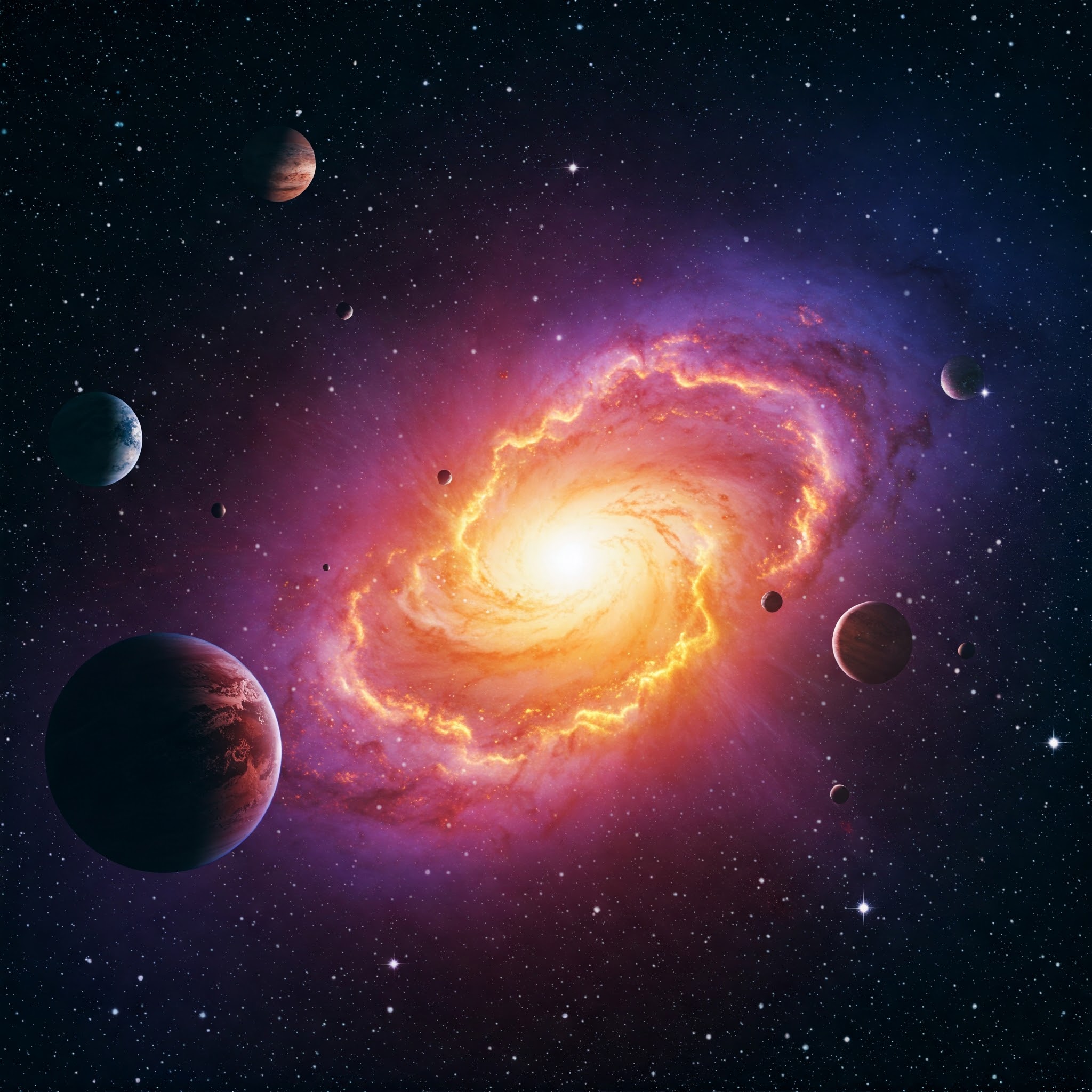What is Space? | Explore the Infinite Universe and Unlock Cosmic Secrets
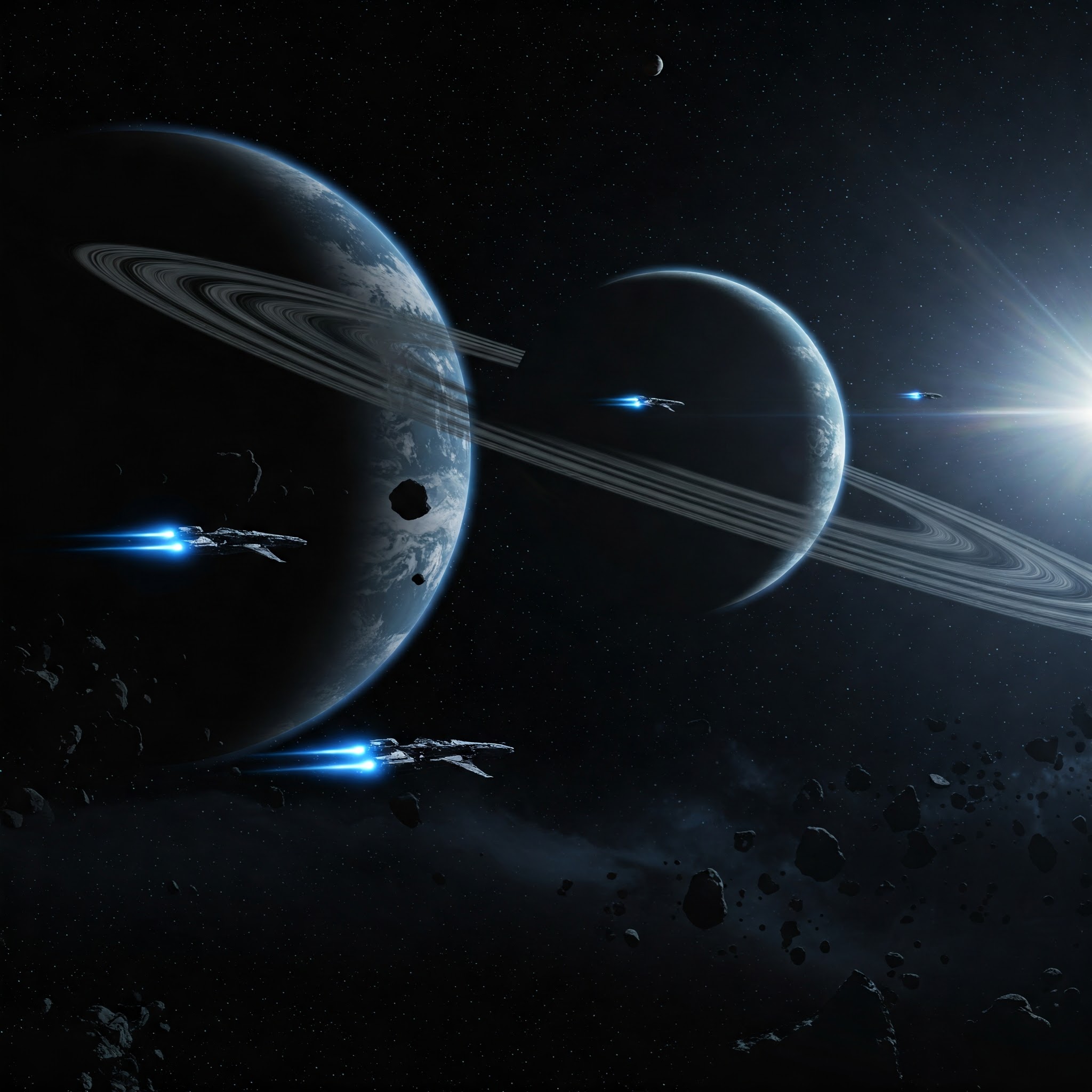
🌌 What is Space? A Deep Dive into the Infinite Universe
Space — it’s the vast, boundless expanse that surrounds our planet and everything we know. But what exactly is space, and how do we define it in scientific terms? Let’s explore this awe-inspiring subject in detail.
🌠 The Basics of Space: A Definition
In its simplest form, space is the area beyond Earth’s atmosphere, a vacuum where no air or matter exists.Known for its darkness and emptiness, space isn’t entirely empty — it’s filled with galaxies, stars, planets, asteroids, and more.
Beyond this, the environment is devoid of oxygen, and the physical laws we experience on Earth (like gravity) function differently.
🌌 Why Is Space Important to Us?
Space is more than just a cosmic void. It is essential for several reasons:
- Understanding Our Origins: By studying space, we learn about the universe’s beginnings, how Earth was formed, and the origins of life itself. Space exploration allows us to peek into the distant past, giving insight into the early stages of the cosmos and the formation of stars and galaxies.
- Technological Advancements: Space research has led to incredible technological innovations we use in everyday life, from satellite communications and GPS systems to weather forecasting and advanced medical imaging.
- The Search for Extraterrestrial Life: One of humanity’s most profound questions revolves around the existence of life beyond Earth. Exploring space allows scientists to look for signs of life on other planets and moons.
🪐 What is in Space? Exploring Its Wonders
What is Space? | Explore the Infinite Universe
While space is often thought of as dark and empty, it’s actually filled with amazing phenomena and objects that challenge our understanding. Here are just a few:
- Stars and Solar Systems
Stars are the lifeblood of space. They are massive, glowing spheres of hot gas that shine due to nuclear fusion. Our Sun is just one star in a galaxy of billions. Solar systems, like ours, orbit around stars, and each one may harbor planets, moons, and asteroids. - Black Holes
One of the most fascinating objects in space, black holes are regions of space where gravity is so strong that not even light can escape. These mysterious phenomena challenge everything we know about physics. - Galaxies
A galaxy is a massive system containing stars, planetary systems, and other cosmic matter bound together by gravity. Nebulae and Supernovae
A nebula is a cloud of gas and dust, often where new stars are born. Supernovae are the explosive deaths of stars, dispersing elements across space that form new stars and planets. - Exoplanets
Outside our solar system, scientists have discovered thousands of exoplanets (planets orbiting other stars). Some may be in the “habitable zone,” where conditions are right for life to potentially exist.
🌌 How Do We Study Space? Tools and Technologies
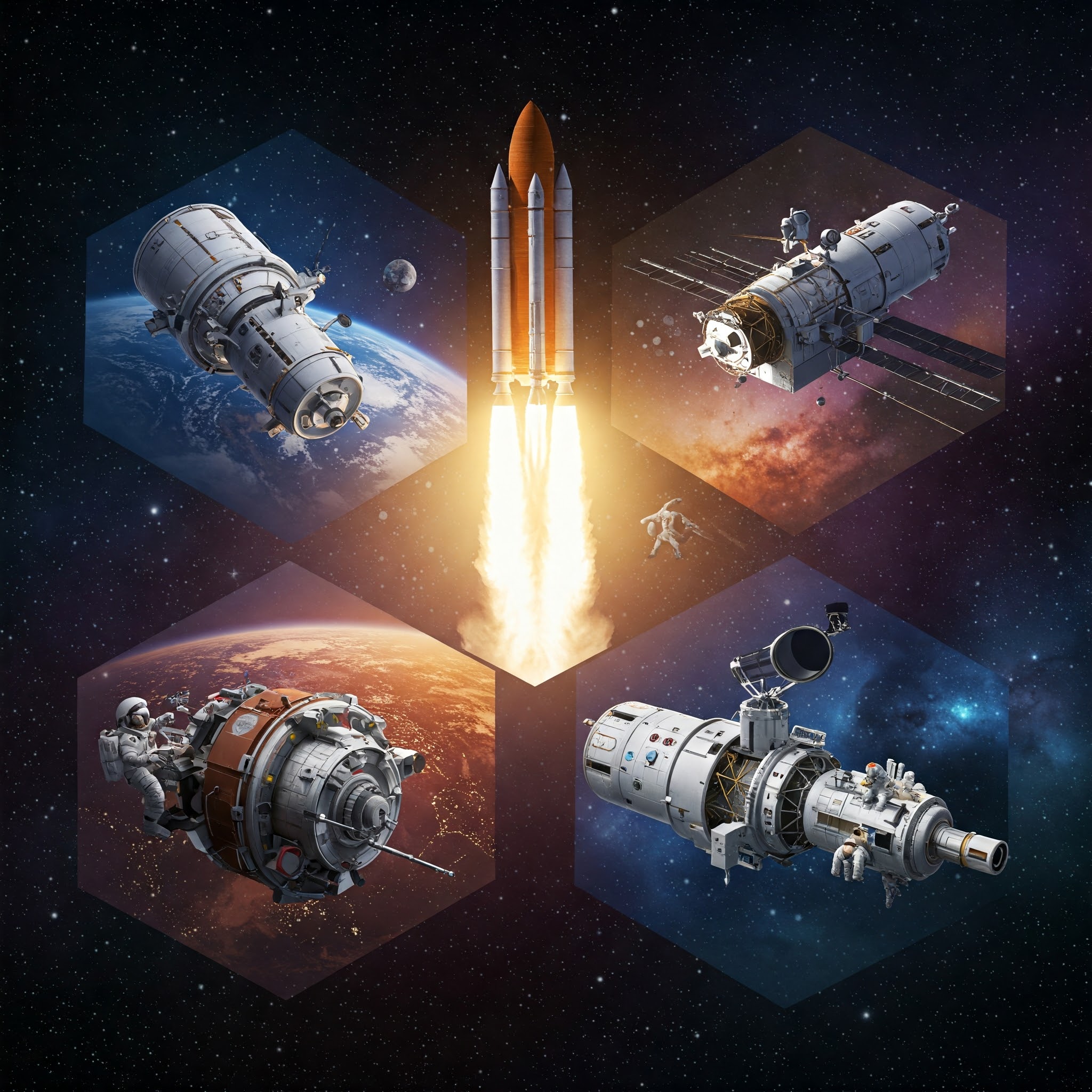
What is Space? | Explore the Infinite Universe
Space exploration has come a long way, thanks to human ingenuity and technological advancements. Here’s how we study space:
- Telescopes: Instruments like the Hubble Space Telescope and the newly launched James Webb Space Telescope allow scientists to observe distant stars, galaxies, and other cosmic phenomena from Earth’s orbit.
- Space Probes: Spacecraft like Voyager and New Horizons send back detailed images and data from distant planets and moons, expanding our understanding of the solar system.
- Robotic Rovers: On planets like Mars, rovers like Curiosity and Perseverance explore the surface, searching for signs of past or present life.
- Human Spaceflight: Humans have ventured into space aboard missions like the Apollo program, which landed astronauts on the Moon, and the International Space Station (ISS), where astronauts live and work for extended periods.
🌠 The Future of Space Exploration
What is Space? | Explore the Infinite Universe
The future of space exploration is bright and filled with exciting possibilities. Here are some of the key areas that could shape the future of space:
- Mars Exploration: NASA’s Artemis mission aims to return humans to the Moon, serving as a stepping stone for future manned missions to Mars. The possibility of colonizing Mars is becoming more realistic with every new mission.
- Private Space Industry: Companies like SpaceX, Blue Origin, and Virgin Galactic are pioneering space tourism and making space more accessible than ever.
- Deep Space Exploration: Future space missions aim to explore beyond our solar system, possibly sending probes to distant stars and exoplanets in search of alien life.
🌌 Why Should We Care About Space?
What is Space? | Explore the Infinite Universe
Space exploration not only satisfies our curiosity about the cosmos but also provides tangible benefits here on Earth. From technological innovations to inspiring the next generation of scientists, astronauts, and engineers, space is an invaluable field of study.
🚀 Why Is Space Exploration Important?
What is Space? | Explore the Infinite Universe
Unlocking the Universe, Advancing Humanity
Space exploration isn’t just about rockets, planets, or astronauts floating in zero gravity. It’s a monumental journey that drives scientific progress, technological innovation, and the future of human survival. But why is space exploration important to us, right now, here on Earth?
Let’s break down the key reasons why venturing into the final frontier matters more than ever.
🌌 1. Understanding Our Place in the Universe
What is Space? | Explore the Infinite Universe
One of the most profound reasons to explore space is to answer the big question:
Through missions like the James Webb Space Telescope and Voyager probes, we’ve begun uncovering the story of how stars, galaxies, and even life itself came to be. The more we learn about space, the more we understand our own origins and our place in the vast cosmic web.
🧬 2. Scientific Discovery & Innovation
What is Space? | Explore the Infinite Universe
Space missions have led to breakthroughs in:
- Physics
- Biology
- Chemistry
- Climate science
For example, studying other planets’ atmospheres helps us understand climate change on Earth. Observing space phenomena gives us insight into fundamental laws of nature, like gravity and time.
🛰️ 3. Technological Advancements
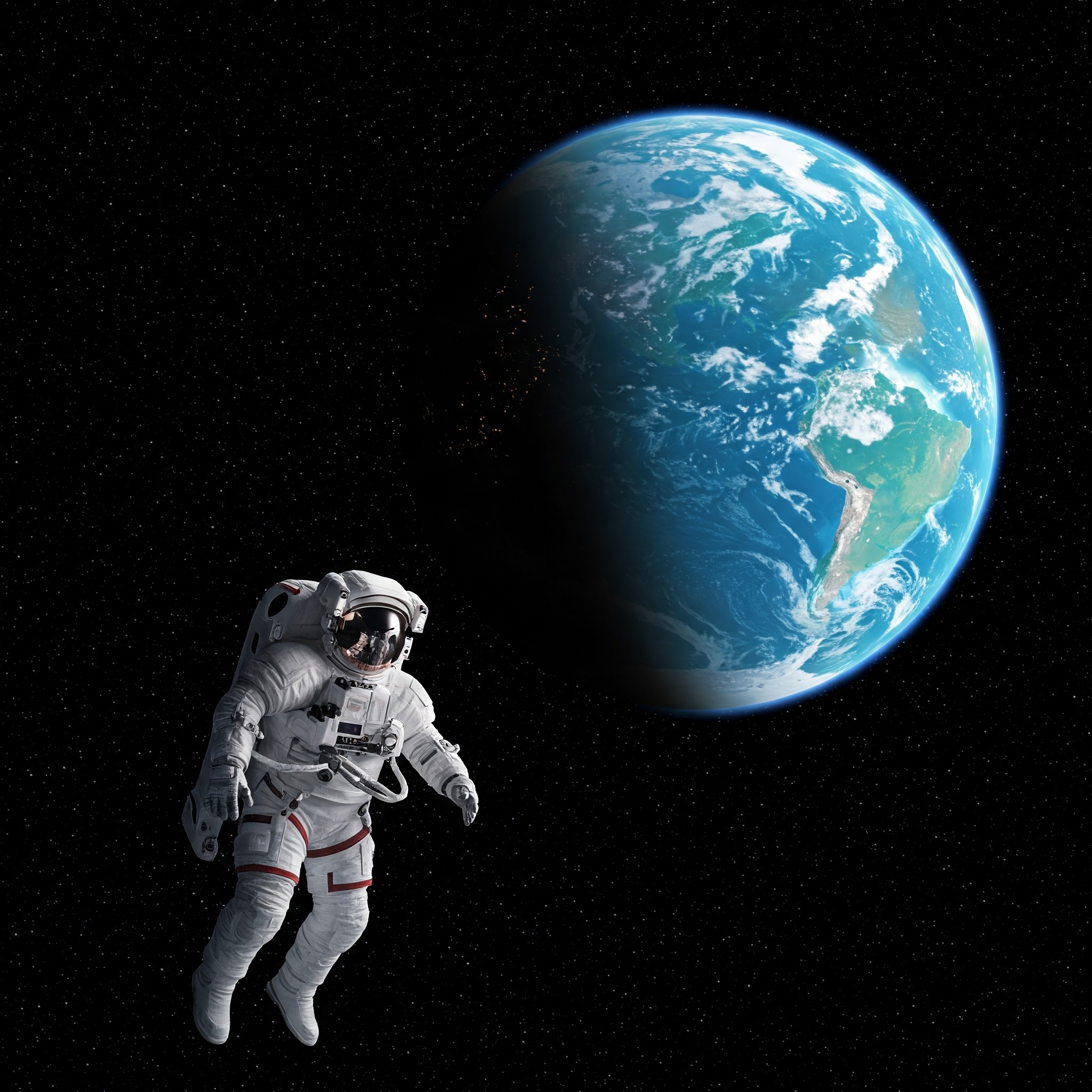
What is Space? | Explore the Infinite Universe
Much of the tech we use today was born from space research:
- GPS navigation
- Weather forecasting
- Satellite communication
- Medical imaging (like MRI & CAT scans)
Every mission pushes the limits of what’s possible — resulting in spin-off technologies that improve life on Earth.
🪐 4. Inspiring Future Generations
What is Space? | Explore the Infinite Universe
Space inspires curiosity and ambition.
When kids watch a rocket launch or hear about Mars rovers, they start dreaming bigger. Space exploration motivates the next generation to pursue careers in:
- Science
- Engineering
- Technology
- Math (STEM fields)
This leads to a smarter, more capable society.
🌍 5. Protecting Planet Earth
What is Space? | Explore the Infinite Universe
Understanding space helps us protect our planet:
- Tracking asteroids that could threaten Earth
- Using satellites to observe Earth’s climate, deforestation, and ocean health
Space isn’t separate from Earth — it gives us tools to take better care of it.
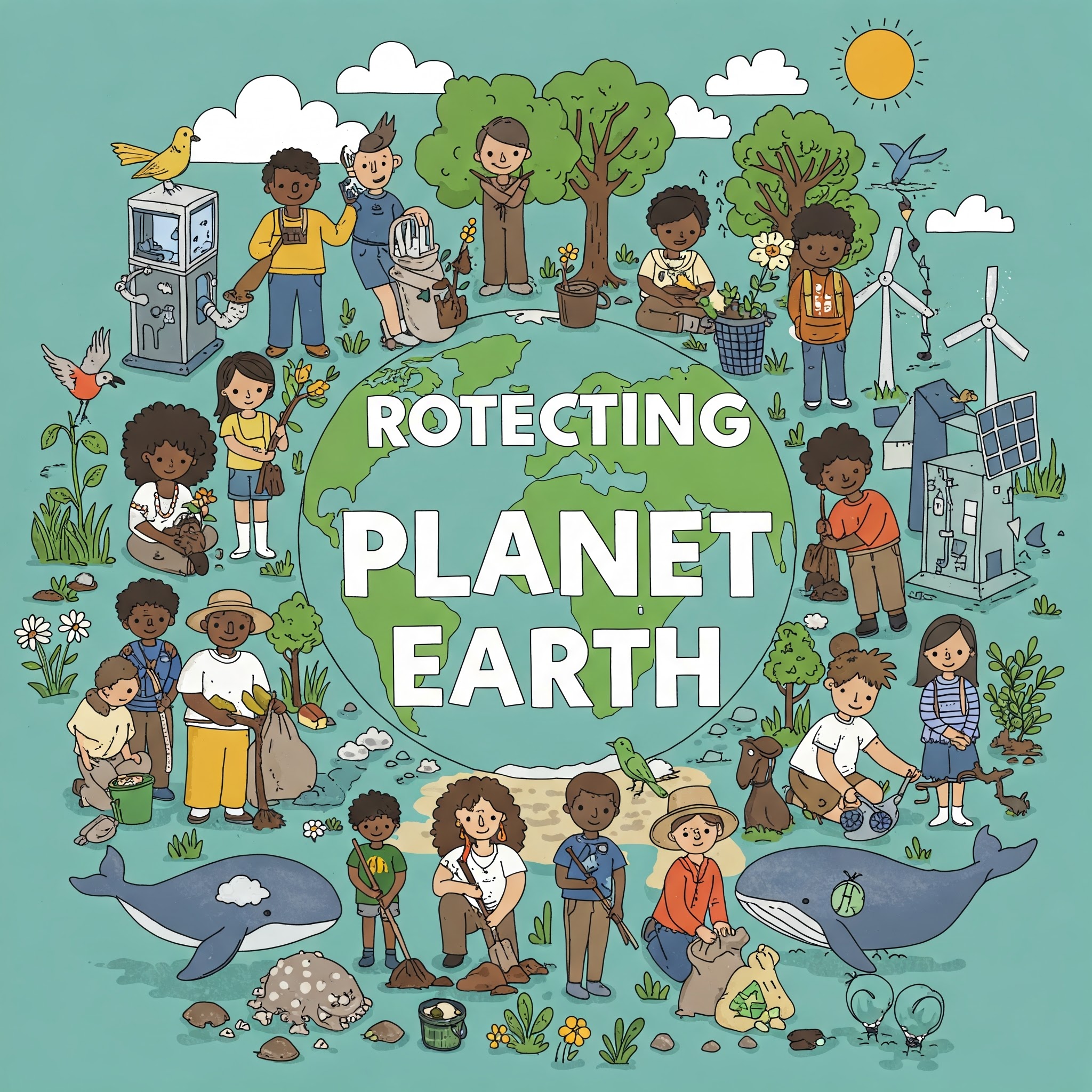
🧑🚀 6. The Future of Human Survival
What is Space? | Explore the Infinite Universe
Earth won’t last forever. Whether due to natural disasters, resource depletion, or cosmic events — humanity needs a Plan B.
Space exploration is the first step toward becoming a multi-planetary species. Colonizing the Moon or Mars may one day be essential for our survival. Companies like SpaceX, NASA, and Blue Origin are already building that future.
🌠 7. Global Collaboration and Peace
What is Space? | Explore the Infinite Universe
Space has become a place where nations collaborate. Projects like the International Space Station (ISS) bring together countries to work toward common goals.
This fosters peaceful relationships and helps nations pool resources for larger missions — something we need more of on Earth.
Space facts ?
🌌 25+ Amazing Space Facts That Will Blow Your Mind
What is Space? | Explore the Infinite Universe
Fun, Surprising & Scientific Facts About the Universe
The universe is vast, mysterious, and full of mind-blowing wonders. Whether you’re a space lover, a science nerd, or just curious, these space facts will leave you amazed and craving to learn more.
Here are some of the most fascinating and surprising facts about space you probably didn’t know!
🌠 1. Space is completely silent.
What is Space? | Explore the Infinite Universe
There’s no air or atmosphere in space, so sound can’t travel like it does on Earth.
🚀 2. A day on Venus is longer than a year.
Venus rotates so slowly that one rotation (a day) takes 243 Earth days, while one orbit around the Sun (a year) takes just 225 Earth days.
🌍 3. Earth is not a perfect sphere.
What is Space? | Explore the Infinite Universe
Due to its rotation, Earth bulges slightly at the equator — it’s actually an oblate spheroid.
🌑 4. The Moon is drifting away from Earth.
What is Space? | Explore the Infinite Universe
Each year, the Moon moves about 3.8 cm (1.5 inches) farther away from Earth.
💫 5. Neutron stars are insanely dense.
What is Space? | Explore the Infinite Universe
A neutron star can weigh more than the Sun but is only the size of a city. A single teaspoon of its material would weigh about 6 billion tons!
🕳️ 6. Black holes can slow down time.
What is Space? | Explore the Infinite Universe
The closer you get to a black hole, the slower time passes for you compared to someone far away — this is known as time dilation.
🌌 7. There are more stars in the universe than grains of sand on Earth.
What is Space? | Explore the Infinite Universe
With over 200 billion galaxies, each containing billions of stars, the numbers are truly mind-bending.
☀️ 8. The Sun makes up 99.86% of the solar system’s mass.
What is Space? | Explore the Infinite Universe
Almost all the mass in our solar system is in the Sun — it’s that massive.
🪐 9. Saturn could float on water.
What is Space? | Explore the Infinite Universe
Because of its low density, Saturn would float if there were a body of water large enough to hold it!
🌌 10. The observable universe is 93 billion light-years wide.
What is Space? | Explore the Infinite Universe
And it’s still expanding — faster than the speed of light.
🌕 11. You can’t walk on Jupiter, Saturn, Uranus, or Neptune.
What is Space? | Explore the Infinite Universe
These gas giants have no solid surface to stand on.
🌍 12. Earth is the only planet not named after a god.
What is Space? | Explore the Infinite Universe
All other planets in the solar system are named after Roman or Greek gods.
🔭 13. The Hubble Space Telescope has captured over 1.5 million observations.
What is Space? | Explore the Infinite Universe
Since its launch in 1990, Hubble has completely changed how we see the universe.
🪐 14. Uranus spins sideways.
What is Space? | Explore the Infinite Universe
Its axis is tilted at 98 degrees — it’s practically rolling around the Sun!
🔥 15. The largest known star is 1,700 times the size of the Sun.
What is Space? | Explore the Infinite Universe
UY Scuti, a red supergiant, is currently the largest star discovered in terms of volume.
🛰️ 16. There are thousands of satellites orbiting Earth.
What is Space? | Explore the Infinite Universe
As of 2025, more than 7,500 satellites are actively operating in Earth’s orbit.
🌑 17. There is no atmosphere on the Moon.
What is Space? | Explore the Infinite Universe
That’s why the Moon’s sky is always black — even during daytime!
🧪 18. Space smells like seared steak.
What is Space? | Explore the Infinite Universe
Astronauts have reported a burnt-metal, steak-like smell clinging to their suits after spacewalks — caused by high-energy particles.
👽 19. Scientists have found thousands of exoplanets.
What is Space? | Explore the Infinite Universe
Over 5,000 exoplanets (planets outside our solar system) have been discovered — some may even be habitable.
🌠 20. Shooting stars are not stars.
What is Space? | Explore the Infinite Universe
They’re actually meteoroids burning up in Earth’s atmosphere.
💥 21. The Sun will eventually become a white dwarf.
What is Space? | Explore the Infinite Universe
In about 5 billion years, our Sun will expand into a red giant, then shrink into a white dwarf.
🌌 22. You age slower in space.
What is Space? | Explore the Infinite Universe
Thanks to Einstein’s theory of relativity, time moves slightly slower for astronauts aboard the ISS compared to people on Earth.
🌙 23. A footprint on the Moon can last millions of years.
What is Space? | Explore the Infinite Universe
There’s no wind or rain on the Moon to erase footprints, so they can remain intact almost forever.
🪐 24. Jupiter has the shortest day of all planets.
What is Space? | Explore the Infinite Universe
It spins once every 10 hours, making it the fastest-rotating planet in our solar system.
🌠 25. Light from the Sun takes about 8 minutes to reach Earth.
What is Space? | Explore the Infinite Universe
So when you look at the Sun (never directly!), you’re seeing it as it was 8 minutes ago.
What is space?
What is the definition of a space? Space refers to the vast, boundless region beyond the Earth’s atmosphere, where celestial bodies like stars, planets, and galaxies exist. In physics, space is a three-dimensional continuum in which all matter and energy exist. It plays a crucial role in the study of the universe, from understanding gravity and light to the exploration of extraterrestrial life. Learn how space is defined across different scientific disciplines and its profound impact on our understanding of the cosmos.
What is space called in science?
planets, and galaxies reside. Space is a fundamental concept in fields such as astronomy, astrophysics, and cosmology. It is a region where the laws of physics, including gravity and light, operate on a cosmic scale, shaping the universe’s structure and evolution.
What is space class 7?
In Class 7 science, space refers to the vast, empty region beyond Earth’s atmosphere that is filled with celestial objects like stars, planets, moons, and galaxies. It is also known as ‘outer space.’ Students learn about the solar system, the different planets, the role of gravity, and how the Earth’s movement in space leads to phenomena like day and night. Understanding space in Class 7 helps students explore the wonders of the universe and the science behind our planet’s place in it.
What is space class 3?
In Class 3 science, space refers to the large, empty area that exists beyond the Earth’s atmosphere. It is home to stars, planets, the Moon, and other celestial objects. Space is also known as ‘outer space.’ Students learn about the Earth’s position in space, the Sun, and the Solar System. They explore how day and night happen and how the Earth orbits the Sun. Understanding space helps students develop a curiosity about the universe around them.
What is Space? Unveiling the Mysteries of the Universe.
From the ancient stargazers who observed the night sky to modern-day scientists studying the cosmos, the concept of space has always intrigued us. But what exactly is space? What lies beyond our planet Earth? In this article, we will explore the definition of space, its significance, and the mysteries it holds.
The Definition of Space . It is a vacuum, meaning it is devoid of air and matter. Space is where all celestial bodies, such as stars, planets, moons, and galaxies, exist. The term “space” can refer to both the physical region we observe and the scientific study of the universe.
In physics, space is often referred to as a three-dimensional continuum, which means that it has length, width, and depth. It’s also where we find the concept of “time” integrated into the study of the universe. This integration of space and time together is described in Einstein’s theory of relativity, which fundamentally changed our understanding of space as a fixed entity.
What Lies Beyond Earth?
To better understand space, it’s essential to comprehend what lies beyond Earth’s atmosphere. While Earth exists in the context of a solar system, space contains countless other stars, planets, galaxies, and nebulae.
1. The Solar System
Our home, Earth, is part of a larger system known as the solar system
2. Stars and Galaxies
Stars are massive celestial bodies that emit light and heat due to nuclear fusion occurring at their cores. Our Sun is a star, but it is just one of countless stars scattered across the universe. Stars group together to form galaxies, massive collections of stars, gas, dust, and dark matter bound together by gravity. Our galaxy, the Milky Way, contains over 100 billion stars, and the observable universe contains billions of galaxies, each with their own stars and planetary systems.
3. Black Holes
They are invisible because no light can escape them, but scientists have detected their presence by observing their effects on nearby matter.
4. Nebulae
Nebulae are vast clouds of gas and dust in space. Some nebulae are regions where new stars are born, while others are the remnants of dead stars. The Orion Nebula is one of the most famous examples of a stellar nursery, where new stars are formed.
The Expanding Universe
One of the most significant discoveries of modern science is the realization that space is expanding. In the early 20th century, astronomer Edwin Hubble observed that galaxies were moving away from us in all directions, implying that the universe itself was expanding. been expanding ever since.
The expansion of space means that the distances between galaxies are increasing over time. The rate at which the universe expands is measured by the Hubble constant, and understanding this expansion is critical for comprehending the age and fate of the universe.
Space Exploration: Humans Reaching for the Stars
Beginning with the Space Race in the mid-20th century, space agencies like NASA, ESA (European Space Agency), and Roscosmos (Russian space agency) have launched numerous missions to explore outer space.
In 1969, humans first set foot on the Moon during the Apollo 11 mission, marking a historic milestone in space exploration. Since then, humanity has sent spacecraft to other planets in our solar system, launched telescopes like the Hubble Space Telescope to observe distant galaxies, and sent robotic missions to study comets, asteroids, and the outer reaches of the solar system.
More recently, private companies like SpaceX and Blue Origin have entered the space race, aiming to make space travel more affordable and accessible. These companies are also working on plans for human missions to Mars and beyond.
The Role of Space in Our Lives
While space may seem distant and far removed from our everyday lives, it has a profound impact on us. Here are some of the ways space affects our daily existence:
1. Technology
Satellite communication, GPS systems, weather forecasting, and even improvements in medical imaging have all been made possible by advancements in space research.
2. Scientific Discovery
Space exploration has led to countless scientific discoveries that have expanded our understanding of the universe. From studying the formation of stars and galaxies to understanding the origins of our solar system, space research continues to push the boundaries of human knowledge.
3. Inspiration
The study of space has also inspired generations of people to look up at the stars and dream of what might be out there. The idea that we are part of a much larger cosmos has profound philosophical and cultural implications.
The Future of Space
As our understanding of space continues to evolve, we are entering an exciting era of space exploration. Scientists are working on projects that could provide answers to some of the most profound questions about the universe, such as:
- Is there life beyond Earth?
- What is the nature of dark matter and dark energy?
- Can humans eventually colonize other planets?

